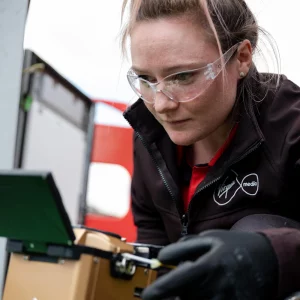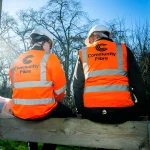Sponsored Links
CLA UK Claims the BT Superfast Broadband Rollout is Still Ignoring Rural Areas
Posted: 15th Sep, 2011 By: MarkJ

 The Country Land and Business Association (CLA), a land owners lobby group that covers England and Wales, has warned that BT's currently projected deployment of superfast broadband ( FTTC / FTTP ) services will not go far enough and leave the "final third" (33%) of UK homes and businesses "without a decent infrastructure".
The Country Land and Business Association (CLA), a land owners lobby group that covers England and Wales, has warned that BT's currently projected deployment of superfast broadband ( FTTC / FTTP ) services will not go far enough and leave the "final third" (33%) of UK homes and businesses "without a decent infrastructure".The comments come just two days after BT announced the next phase (8) of its rollout, which will see an additional 114 telephone exchanges being upgraded to support the new services by Autumn 2012 (here). The association welcomed this news but warned that BT's primary motive "is making the already-fast faster".
CLA President, William Worsley, said:
"We welcome BT’s expectation to make super-fast fibre optic broadband available to two-thirds of UK homes and businesses by the end of 2015, although these are places that already have a decent broadband service.
BT should focus on those rural areas with barely adequate broadband or none at all. The final third of the country still lacks any broadband service and will be even further behind by 2015.
We recognise a Public Private Partnership is needed to address the needs of supplying broadband to the most rural and remote areas. If the Government is determined to have the best broadband network in Europe, it must work to encourage public and private partnerships and projects to bring faster technologies to rural Britain."
"We welcome BT’s expectation to make super-fast fibre optic broadband available to two-thirds of UK homes and businesses by the end of 2015, although these are places that already have a decent broadband service.
BT should focus on those rural areas with barely adequate broadband or none at all. The final third of the country still lacks any broadband service and will be even further behind by 2015.
We recognise a Public Private Partnership is needed to address the needs of supplying broadband to the most rural and remote areas. If the Government is determined to have the best broadband network in Europe, it must work to encourage public and private partnerships and projects to bring faster technologies to rural Britain."
In fairness a small portion of BT's deployment, such as through the earlier announced expansion to 41 "market towns" (here), have gone towards more rural or rural-ish areas. Crucially this will also be expanded through funding from the governments Broadband Delivery UK (BDUK) office.
The BDUK office aims to ensure that 90% of "people in each local authority area" can access a superfast broadband (25Mbps+) ISP service by 2015, although the remaining 10% have only been promised a minimum download speed of at least 2Mbps.
However the scope of BDUK's investment and thus deployment flexibility is typically focused more tightly towards major suppliers, such as BT , Fujitsu Telecom and KCOM ( KC ). As a result the money is less likely to be used in funding projects that involve smaller operators, which are sometimes cheaper and better equipped to handle remote locations.
It is worth remembering that most of BT's already announced deployments have been related to its original plan and has not fully included rural areas that could be upgraded through match-funding with BDUK money. BT's FTTC coverage will almost certainly extend beyond 66% but at this stage we do not know when or by how much. BT itself would love to reach 90% but this requires almost all of the BDUK funding, which is a tough sell even for the government.
Search ISP News
Search ISP Listings
Search ISP Reviews
Latest UK ISP News








Cheap BIG ISPs for 100Mbps+
150,000+ Customers | View More ISPs
Cheapest ISPs for 100Mbps+
Modest Availability | View More ISPs
Latest UK ISP News
Helpful ISP Guides and Tips
Sponsored Links
The Top 15 Category Tags
- FTTP (6802)
- BT (3881)
- Politics (3075)
- Business (2767)
- Openreach (2663)
- Building Digital UK (2512)
- Mobile Broadband (2475)
- FTTC (2142)
- Statistics (2128)
- 4G (2092)
- Virgin Media (2025)
- Ofcom Regulation (1779)
- 5G (1732)
- Fibre Optic (1604)
- Wireless Internet (1595)
Sponsored
Copyright © 1999 to Present - ISPreview.co.uk - All Rights Reserved - Terms , Privacy and Cookie Policy , Links , Website Rules






























